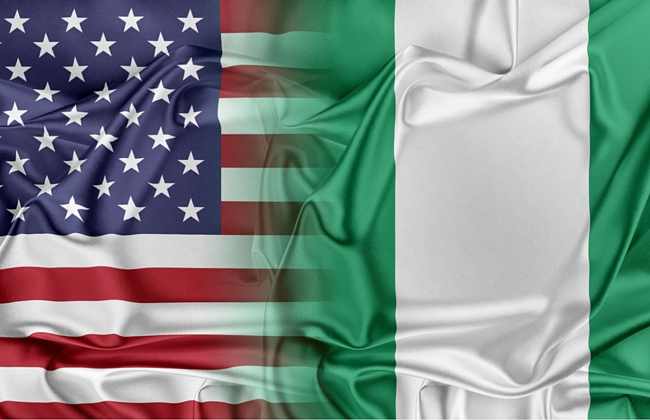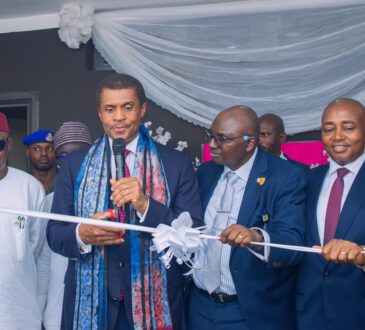
The United States Embassy in Nigeria has clarified that Nigeria is exempted from the new $15000 visa Bond policy introduced by the outgoing administration of President Donald Trump. In statement on it’s website a few hours ago, the US Embassy said Nigeria is not included in this six months pilot programme.
The Embassy said
“In response to the April 2019 Presidential Memorandum on Combating High Nonimmigrant Overstay Rates, the Department and our embassies and consulates overseas conducted an in-depth analysis to identify and address root causes of overstays.”
“Among other efforts to address this challenge, the State Department is considering additional steps to address overstays, including piloting a limited visa bonds program to test, in coordination with the Department of Homeland Security (DHS), the operational feasibility of posting, processing, and discharging visa bonds as means to ensure the timely departure from the United States of certain travelers.”
“Accordingly, the State Department will begin a limited six-month visa bond pilot program beginning on December 24, 2020. We are committed to combating visa overstays and making sure travelers to the United States respect our laws.”
“The implementation of this pilot builds on our engagement with foreign governments in recent years and will ensure continued progress to reduce overstay rates. Nigeria is not included in this six months pilot program.”
The new rule by the outgoing Trump administration will require applicants for tourist and business visas from some countries to pay a bond of up to $15,000 in addition to visa fees which currently range from $160 to $300. The US Department of State says the requirement will be implemented on a temporary basis for a period of six months between December and June as a pilot scheme to test run the policy.
The visa bond will apply to countries whose nationals had overstay rates of 10 per cent or more as of 2019. In total, 23 countries will be affected. The seeming rationale for the visa bonds, which will range from $5,000 to $15,000, is that they will serve as a deterrent to visitors overstaying visas given the prospective penalty of forfeiting the money.
But the US is also wielding the policy as an instrument of diplomacy to force other governments to become more proactive with driving down overstay rates of their nationals. As a department of state memo says, through the policy, “the US Government sends a message to all countries that high overstay rates may result in measures that negatively affect broad categories of their nationals, thereby encouraging countries to take action to encourage their nationals to comply with US immigration law.”
Quartz reports that the move is also more likely to be seen as yet another anti-immigration policy by the Trump administration which disproportionately affects African countries. In September, a proposed change by the US Department of Homeland Security moved to limit visa terms to two years for some international students with Africa accounting for 36 of the 59 countries affected.
The continent has also borne the brunt of several of the Trump administration’s anti-immigration policies. Indeed, Trump’s high-profile and controversial “Muslim ban” in the early days of his administration affected Sudan, Libya, and Somalia. In January, a watered-down version of the ban was expanded to included Nigeria, Eritrea, and Tanzania. While Nigeria has typically seemed a prime subject of the Trump administration’s recent anti-African immigration policies, Africa’s most populous country is not affected by the latest visa bond policy.
Nigeria did rank high among countries with visa overstays in the US in 2018, but the new policy requirement will be placed on countries with over 10 per cent of nationals overstaying their visas as of 2019. It’s also worthy to note that Nigeria had the largest global drop-off in visitors to the US last year. It’s unclear how much these tighter US immigration rules targeting African visitors will change with the incoming Joe Biden administration from Jan. 20.
But many US-Africa watchers expect an immediate improvement in diplomatic rhetoric and broad government-to-government relations which may broadly improve US-Africa relations.




